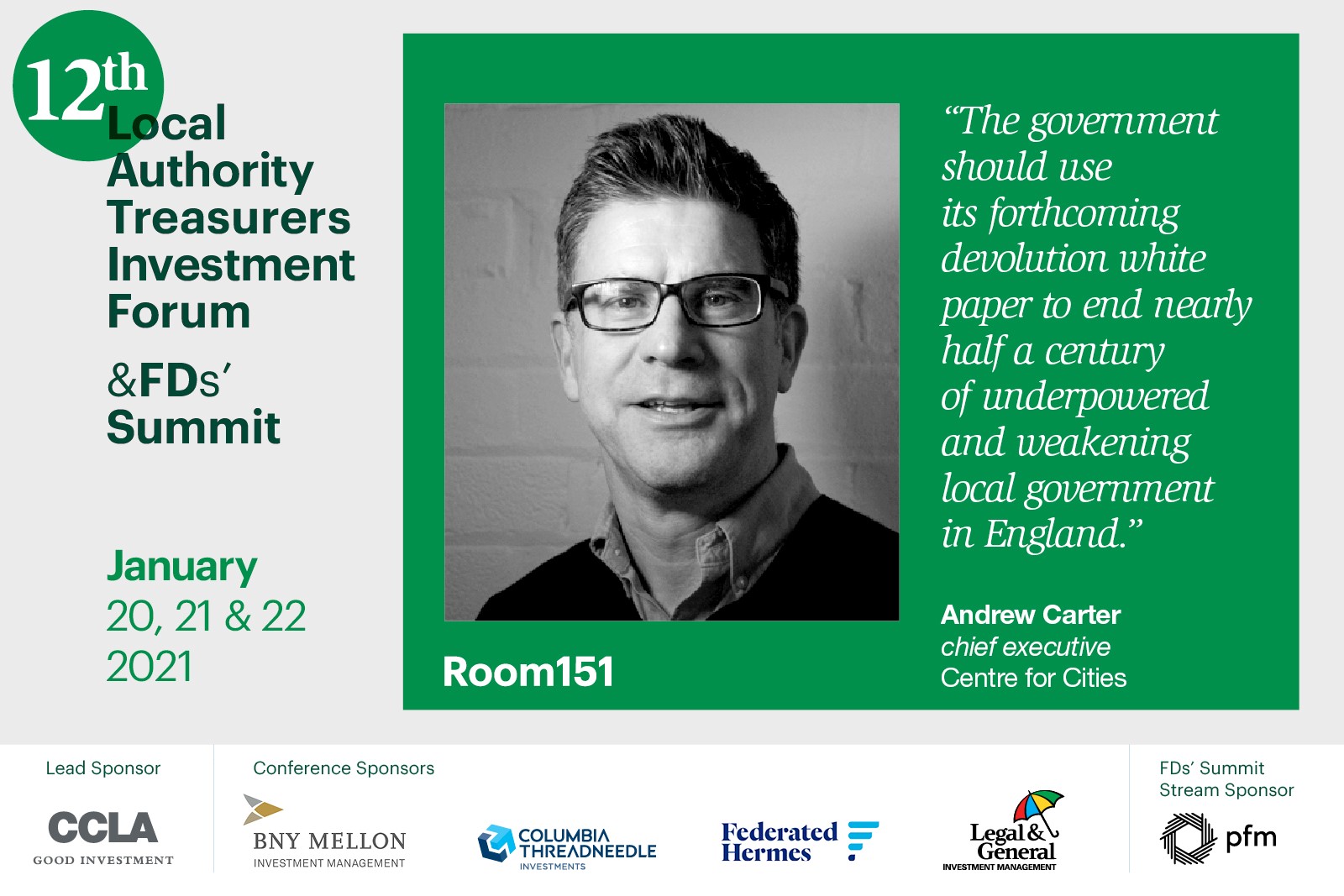
While speculation is rife that the pandemic has pushed some local authorities close to issuing section 114 notices, new guidance from CIPFA aims to encourage more contact with central government. Rob Whiteman, CIPFA’s CEO, explains the guidance; Stephen Fitzgerald emphasises the importance of advice and support for council CFOs.
Rob Whiteman
The financial pressures created by the spread of Covid-19 have pushed public budgets to near breaking point. Over the past three months, many public sector organisations have experienced budgetary pressures, but local authorities appear to have felt them most acutely. To date, central government has released £3.2bn in coronavirus-related support for local government.
Despite this, a recent report by the Institute for Fiscal Studies (IFS) concluded that the financial challenges confronting local government are expected to deepen during the remainder of 2020.
The IFS analysis shows that income from council tax, business rates and commercial activities will all be affected by the UK’s lockdown and social distancing measures. When you set expectations for lower income against higher demand for public services, procurement of personal protective equipment (PPE) and mounting care costs, the situation becomes that much more serious.
Furthermore, the reliance on different revenue streams among different councils means that all types of local authorities, across different UK regions, are closer than ever to issuing Section114 notices.
In the midst of all this, MHCLG permanent secretary Jeremy Pocklington recently told the Public Accounts Committee that his department was “not aware of any local authorities that are imminently planning to issue a Section 114 notice”. But he cannot be oblivious to the calls from across the sector regarding Covid-related pressures.
Services delivered by local authorities affect all aspects of community life. Some of this support is highly visible, such as housing and care packages. However, there is also a more “hidden” level of support that is no less vital and includes support for local suppliers and businesses, which entails considerable financial cost.
Imminent
With higher demand for public services, lower income, inadequate financial support from central government and an overriding legal requirement to balance the budget, it’s not surprising that we’re hearing from a significant number of local authorities that an s114 notice may be imminent.
It is important that we do what we can to avoid this. To support CFOs, CIPFA has agreed two modifications to existing s114 guidance to support local government finance directors with today’s unprecedented financial challenges.
Although the two modifications constitute small changes, they are designed to create space to consider other avenues for financial support.
The following changes have been agreed:
- At the earliest possible stage, a CFO should make informal confidential contact with the Ministry of Housing, Communities and Local Government (MHCLG) to advise of financial concerns and a possible forthcoming S.114 requirement.
- The CFO should communicate the potential unbalanced budget position due to COVID-19 to MHCLG at the same time as providing a potential S.114 scenario report to the council executive (cabinet) and the external auditor.
These temporary changes are designed to facilitate dialogue between local and central government. Prior to these changes, difficult conversations remained both internal and informal, and councils were able to issue notices without involving central government beforehand. Due to current pressures, this can no longer be the case.
The additional breathing room created by these amendments should ensure that more finance directors are able to meet their statutory responsibilities, while avoiding a premature S.114 notice, and the resulting freeze on local spending that inevitably follows.
Urgent
The modifications do not change the statutory duty of the Section 151 officer. Our hope is that they support local authorities to impress upon government both the urgency of the need for additional funding to deal with the current crisis, as well as the thorny issue of local government funding in its entirety.
Councils were already over-stretched and under-resourced coming into this pandemic, and it’s important that this remains a part of the conversation.
MHCLG recently released summary results around the financial impact of COVID-19 on local authorities. This additional action from government will be helpful in ensuring the sector can have informed and productive discussions about funding and allocation challenges that many authorities continue to experience.
Let us hope that in the coming weeks we can identify funding support that provides the sector with sufficient confidence, and moves authorities away from the looming cliff edge that is a S.114 notice. The sector must get back to a more stable financial position – one where we can start to make financial decisions with a long-term, sustainable planning horizon.
Rob Whiteman is chief executive at CIPFA.
Stephen Fitzgerald
One of the recent developments arising from the current COVID 19 position is the proposed temporary modification to the CIPFA statement on section 114 of the Local Government Finance Act 1988 relating to revenue budget management and the chief financial officer’s (CFO) role in ensuring local authorities maintain balanced budgets.
CIPFA’s new guidance is a rather topical development due to much media talk that a number of local authorities appear to be moving into a s114 situation in the present emergency circumstances.
CIPFA has said that the initiative is a bid to ward off “highly disruptive” spending freezes during the Covid-19 crisis.
Intervention
The effect of the modification will be to emphasise a consultative approach to the 114 decision with a key involvement for MHCLG in the process. This suggests a strategic, measured approach and gives the opportunity for the government to intervene in these exceptional circumstances.
The serving of an s114 notice should never be undertaken lightly and any responsible CFO should consult widely with a range of interested parties regardless of any guidance. The modification to the guidance specifically refers to the MHCLG and the external auditor, but involving the following groups can also help in making the S114 decision:
- Leading members in the local authority;
- The chief executive and monitoring officer;
- Senior finance colleagues in other local authorities;
- CIPFA, SOLACE and other professional bodies;
- The Local Government Association, London Council’s or local authority special interest groups.
Support
What is important is that, while the ultimate responsibility for serving the s114 notice lies with the CFO, it is not something to be embarked upon alone.
It is important to draw on a wide range of advice and support so that the best possible decision can be made for the local authority and its community.
The enhanced involvement for MHCLG, which the modification recommends, is to be welcomed as it provides the opportunity for them to consider what additional financial support it can provide through cash grants or other mechanisms such as a capitalisation directive.
However, it is important that this is a temporary modification, for this emergency period, otherwise it could be viewed as a further diminution of local authority independence.
Ultimately, financial decision making on budgets for local authorities should lie with elected councillors advised by officers and accountable to their local communities. Of course, central government has a role but this should be as a supportive partner which enables local authorities to do what they do best, which is to deliver for local people in the face of the challenges that the modern world presents.
Stephen Fitzgerald is an interim finance director.
@SHJFitzgerald
FREE monthly newsletters
Subscribe to Room151 Newsletters
Monthly Online Treasury Briefing
Sign up here with a .gov.uk email address
Room151 Webinars
Visit the Room151 channel
.















